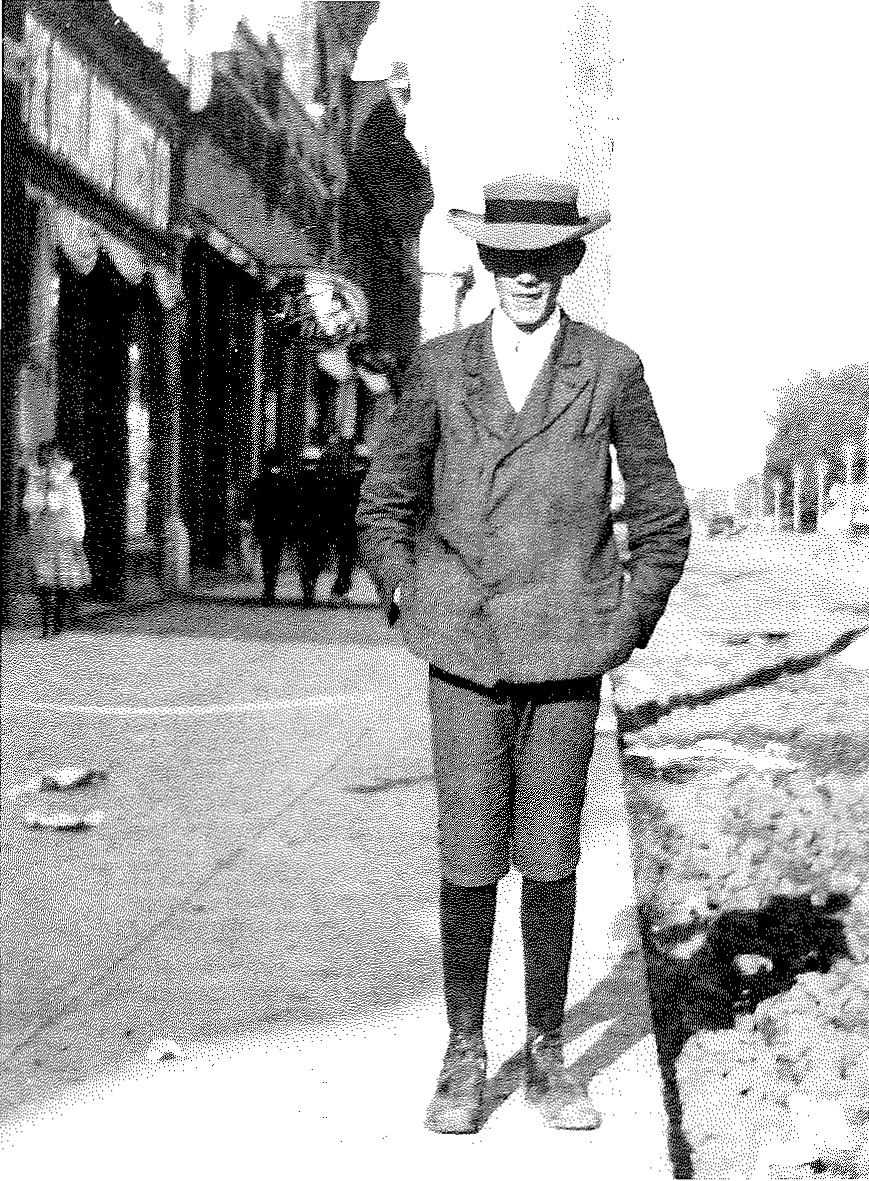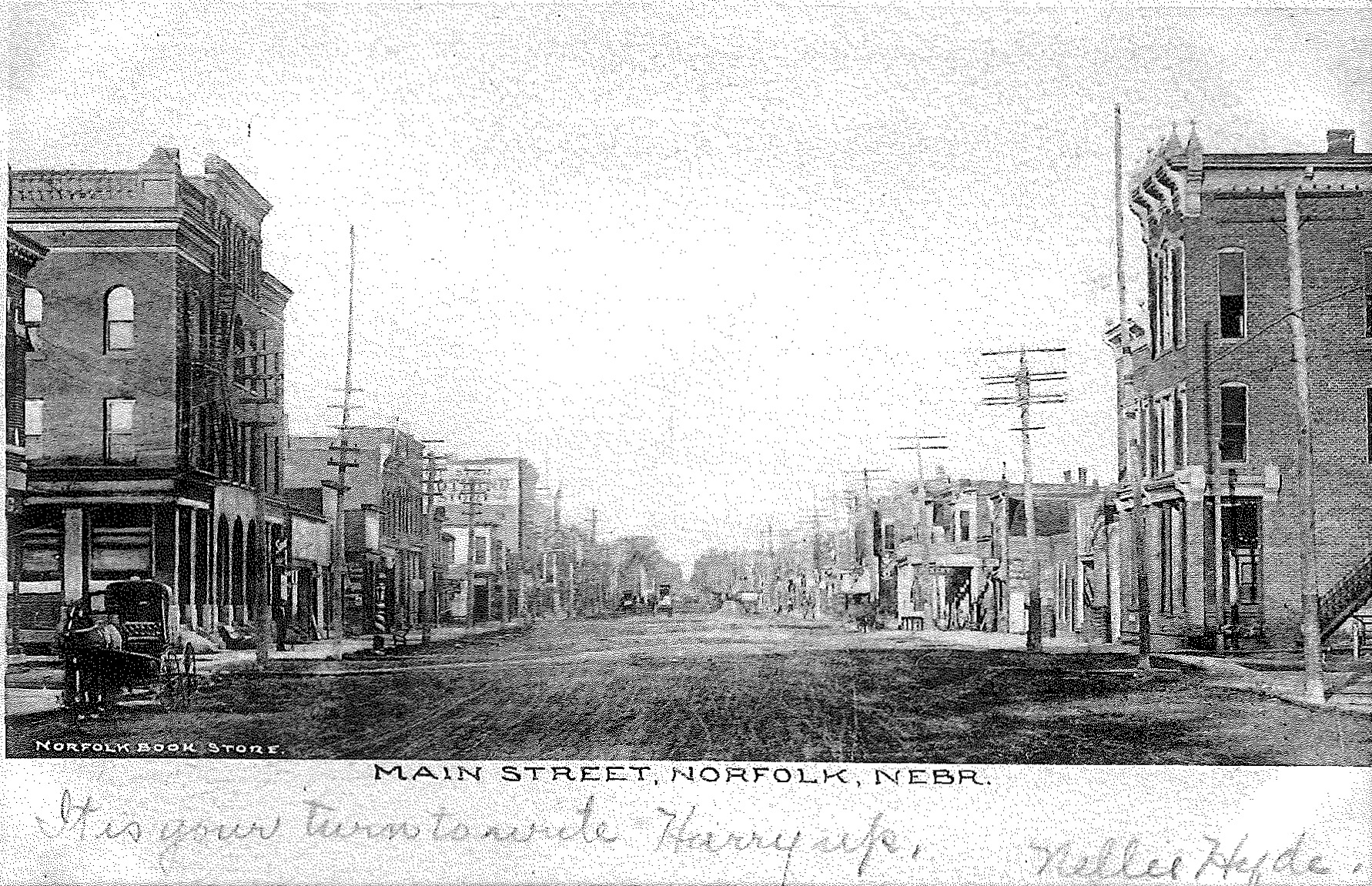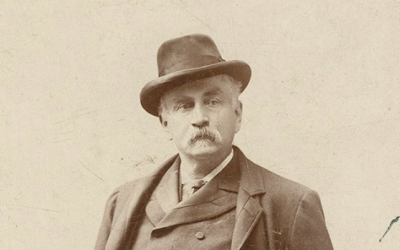
Joyce Hall in front of the Norfolk Book Store
Looking back to his childhood years in David City, Nebraska, Joyce Hall wrote that his family’s life gave him the “gift of poverty”. With a who traveled constantly, a sickly mother, and a younger sister, Joyce and his two older brothers probably didn’t see poverty as much of a gift at the time. Later, however, he recalled it as “a tremendous spur” towards his future success. Nevertheless, the family’s situation urged Joyce and his two older brothers on.
The three Hall brothers, Rollie, Will, and Joyce, combined their savings and experience to form a partnership called the Norfolk Post Card Company. Will Hall, who located in Norfolk in 1905 as part-owner and manager of a book and stationery store, provided the location for the postcard business from his store at 120 Norfolk Avenue. Rollie Hall, a traveling salesman, took on company sales as a sideline to his sales territory for an Omaha candy company. Joyce, the youngest brother, sorted cards and filled orders, leaving high school to join the postcard sales circuit. In 1910, eighteen-year-old Joyce went to Kansas City, where the enterprise evolved into greeting cards, the publication of engraved cards, and manufacturing of entire lines of cards. Joined by Rollie and Will, the business organized under the name “Hall Brothers,” now Hallmark Cards, Inc. By 1911, the Hall Book Store had begun selling “Christmas letters”, advertising them as “something new”. One ad called the “Neat dainty folders of beautiful Christmas sentiments and motos with envelopes to match. If you want to give something different come in and see these letters.”.
A major setback came in 1915 when fire ravaged the Kansas City store, leaving brothers Rollie and Joyce $17,000 in debt. A piano company offered them space on the second story of its building, and despite their debt, they were able to purchase the engraving presses of the Smith-Pierce Engraving Company. They were now not only in the business of selling greeting cards, but also in the business of publishing them under the name “Hall Bros.” which was later changed to “Hallmark”. By then, the Norfolk operation had become the first branch of the growing business as a new building was constructed on the site of Hall’s Smoke House.

An early postcard published by the Norfolk Book Store around 1905.




